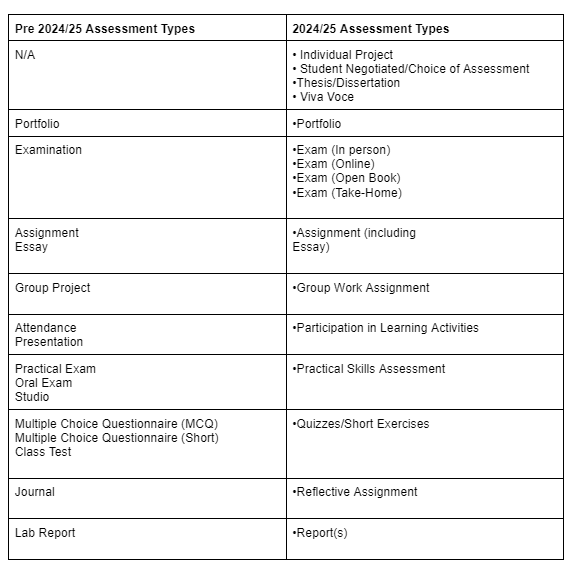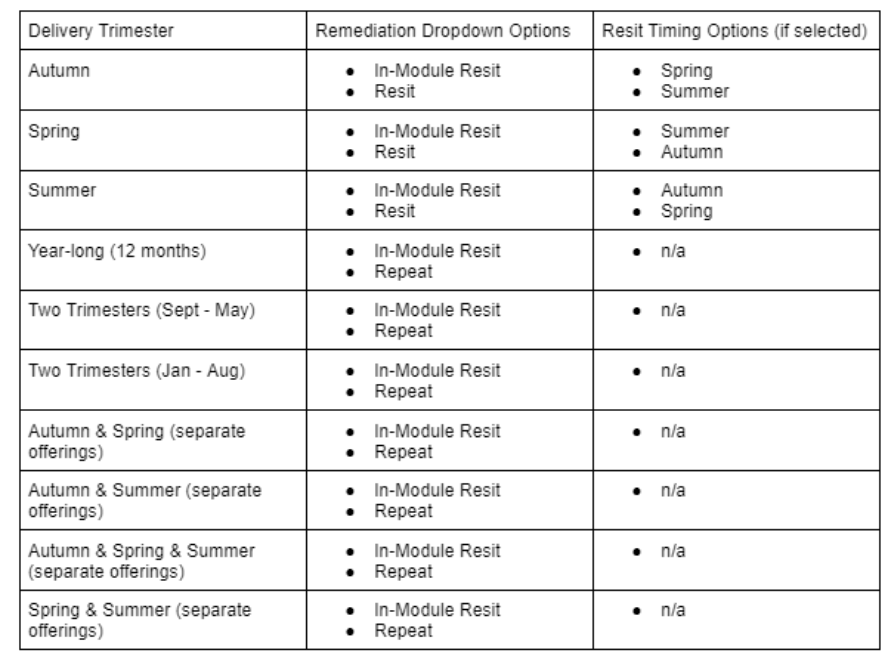As per 4.15 of the Academic Regulations, assessments in the University shall be graded according to university-approved grade scales and procedures. Only grades can be entered on Grade Entry.
As such, there are three overall module grade scale options for a module:
- Letter grades.
- Pass/Fail (GPA Neutral).
- Distinction/Pass/Fail (GPA Neutral).
For assessment components, you must select either a grade scale, a pass/fail scale, or a conversion scale (i.e., if converting mark to grade) from the drop-down field. If you use a conversion scale, a marked component must be converted to a grade using an appropriate conversion process established by the Academic Council or its relevant committee. For the approved mark-to-grade conversion scales, please see our Grade webpage. If a GPA-neutral grade scale is selected, the module grade scale components may be entered into the Assessment Strategy but are not available in My Module Grades.
It is recommended that the standard conversion scale (with a 40% pass mark) be used as the default scale. This scale differentiates performance levels in the A grades, with 70, 80 and 90% thresholds for A-, A, and A+ grades, respectively. For quantitative assessment components, it may be appropriate to use the linear scale, particularly where finer differentiation is required for the higher grades, with increments of 5% for each grade band. There is also an approved conversion scale for components with a 50% pass mark and a linear scale with a 60% pass mark (typically used for modules delivered in our Chinese partner universities).
As is current practice, module coordinators may use their own conversion scales provided they have been made available to students in advance so that there is transparency around how grades are arrived at. In this case, please select 'Other' from the dropdown.

